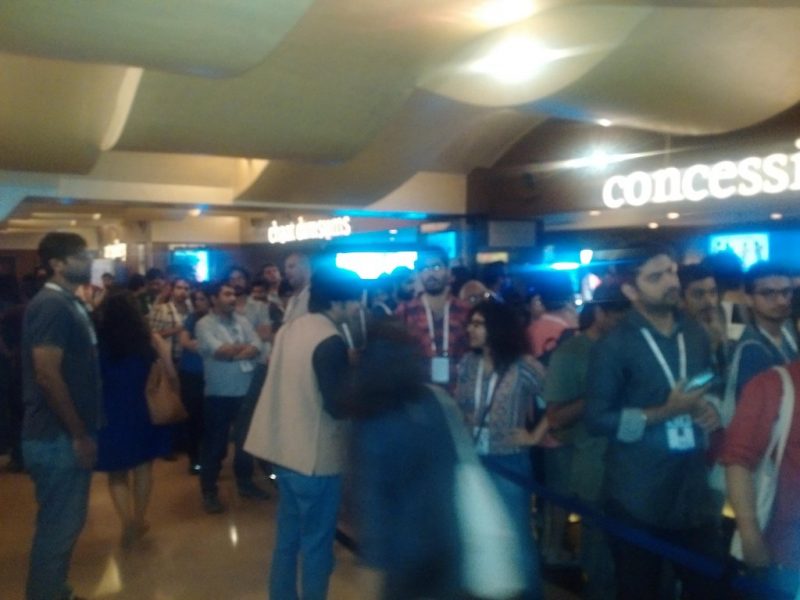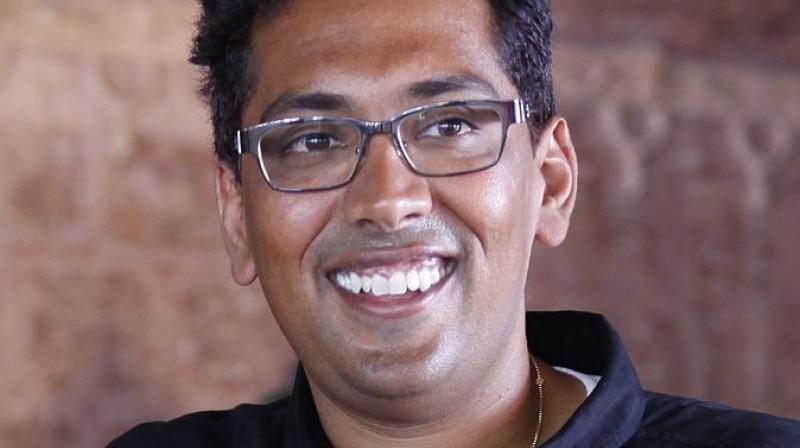It’s Day 4 at the 17th edition of the Jio MAMI Mumbai Film Festival. Queues lengthen, discussions become more animated. From the heart of Indian cinema, from the best of world cinema, for the sheer pleasure of cinema. We bring you daily reports by Aditya Shrikrishna, writing live from Mumbai.
The fourth day separates the dabblers from the connoisseurs. Fatigue sinks in. Three or four films a day. Some hits, some misses. Some films lost to experience because you were late by minutes. Queues begin in front of the screen entrance, and become dangerous hairpin bends. Is this the reserved queue or the unreserved queue for Anomalisa? What film is this queue for? Hey Mister the queue ends here. Behind me. This queue is actually the food queue! Sir, at least 200 people in the unreserved queue surely you won’t get in. And so it goes.
*****
M Manikandan’s Kuttrame Thandanai begins with a Nietzsche quote. But it’s the ghost of Dostoevsky which animates it. Manikandan masterfully paints the entire canvas of his characters and their traits in the first 15 minutes. Ravi, played by Vidharth (unrecognisable from Mynaa), is a collections officer at a local firm. He’s something of a loner, living in what looks like a rundown set of housing board flats. He has all kinds of neighbours. There’s a man whose wife has left him. Every day, there are stormy phone conversations on the balcony, indifferent to the world’s gaze. The landlady living downstairs is nice, but firm when she deals with Ravi. The laundry woman is always quizzical.
There’s Nasser, Ravi’s only friend. Also his conscience keeper. He shapes glass objects. And talks to Ravi about how needs shape morality. Interpersonal dynamics are subtle, like the equation between Ravi and colleague (Pooja Devariya), or his guarded interest in Swetha (Aishwarya Rajesh).
Manikandan uses the problem of Ravi’s tunnel vision in admirable ways. At first it only surfaces as humour. Nothing sentimental. But its symbolism hangs over the film, especially when the story examines the aftermath of a crime. Kuttrame Thandanai suffers though, from a melodrama that creeps into the later portions. Ilaiyaraja’s manipulative background score doesn’t help. A steadily unravelling narrative suddenly sacrifices its tone.
Manikandan signed up to direct this even before Kaaka Muttai happened. And the two films are poles apart in terms of intent. It’ll be interesting to see how Kuttrame Thandanai is received, so soon after the Kaaka Muttai maelstrom.
*****
Charlie Kaufman doesn’t have to worry about comparisons between his last work and his next. Every one of his films is a reworking of the same themes and philosophies. And himself. Kaufman is one of the foremost modern auteurs and serpentine queues formed up to watch his latest film, Anomalisa. The film is only playing at a handful of festivals across the world.
Recommended
In a lot of ways Anomalisa is like Kaufman’s version of Spike Jonze’s Her, the director who collaborated with Kaufman in Being John Malkovich and Adaptation. Anomalisa too deals with loneliness. An expert in the world of customer service, and his inability to connect with people. To add that characteristic touch, Kaufman (along with co-director Duke Johnson) has filmed this in stop motion, bringing out the mechanical nature of contemporary everyday relationships.
Anomalisa in one word is awkwardness. Awkwardness in dealing with fellow flight passengers, taxi drivers, or the hotel chaperon. An awkwardness that spills into interactions with people you’ve known all your life. This is at its most pronounced in one of the best sex scenes ever on screen. Sex in cinema can be rendered practiced and perfect, erasing the untrained, and awkward. Kaufman recreates it like none other.
*****
Image Courtesy: Jio MAMI Film Festival



